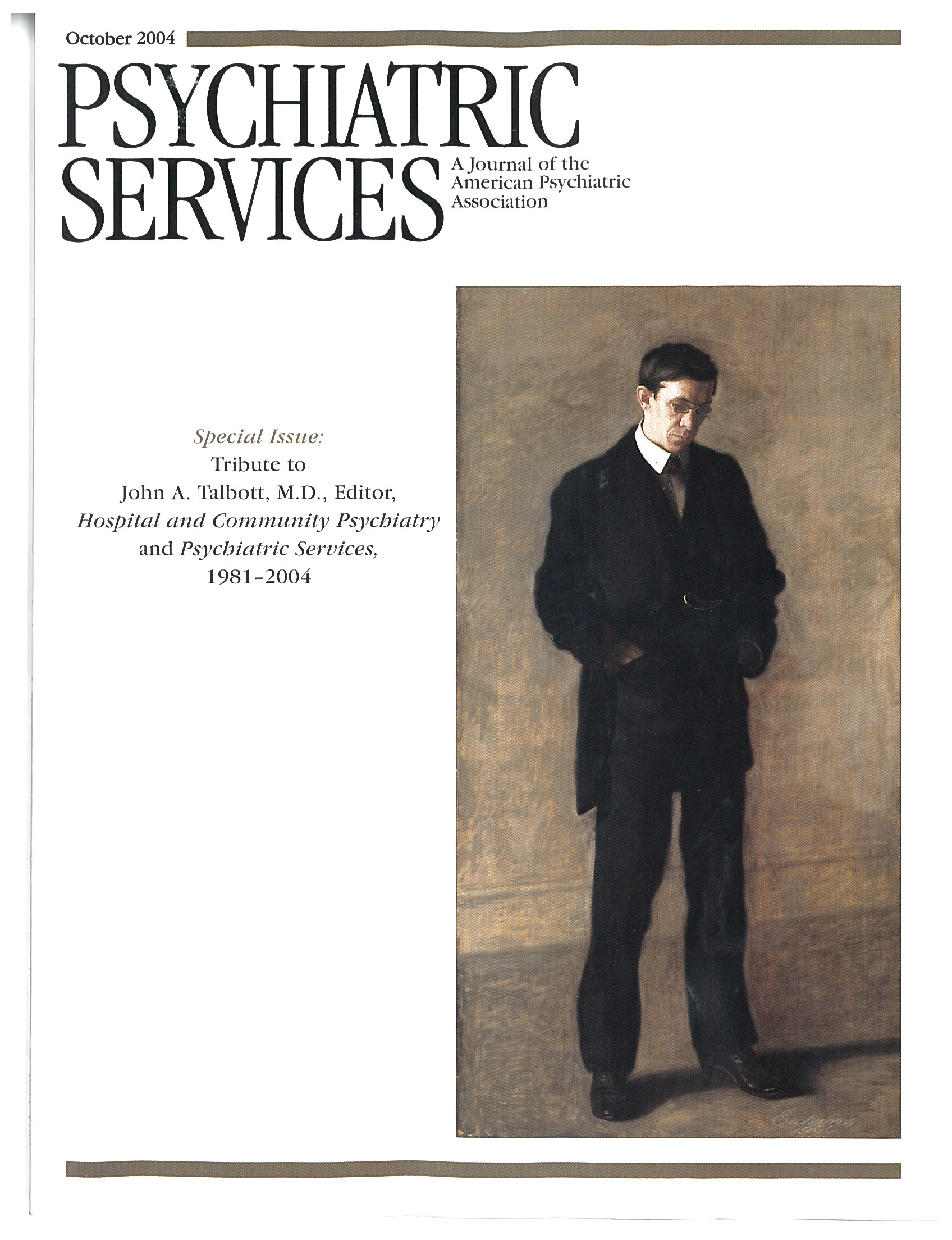To the Editor: It is perhaps strange that a lawyer would find his name on a list of individuals asked to comment on John Talbott's tenure as editor of this journal. Strange or not, I am delighted to have been given the opportunity. During the early years of John's leadership, I served as general counsel of the American Psychiatric Association and, in that capacity, had many interactions with John and with the journal. He is an extraordinary leader and, not surprisingly, Hospital and Community Psychiatry and Psychiatric Services have thrived under his stewardship.
First, a few words about John. He is a psychiatrist of true vision and one who has always deeply understood the need for a comprehensive, biopsychosocial paradigm to support the psychiatric endeavor. Time and time again, I observed him as he stood firm against those who sought more simplistic, one-dimensional approaches. In this, as in so many other things, he has served the field extremely well.
On a personal level, John is a joy to know. He has a magical twinkle in his eye that constantly reminds you of two things—first, that he knows something that you have not quite grasped but that, under his careful tutelage, you will eventually understand, and second, that he is having fun, even as he tackles enormously complex issues of psychiatric illness, the power of the science, and the boundaries of the profession. Any discussion with him always makes you walk away feeling more knowledgeable and better about yourself.
These talents and others have made John uniquely qualified to charter a course for this journal, to take it from a relatively marginal, almost fringe journal to a significant psychiatric publication. Combining his scientific and medical knowledge with his profound insight into the human condition, John helped to shape a journal that was a lot like him: a serious publication that somehow managed to preserve that twinkle at all times.
Mr. Klein is chancellor of the New York City Department of Education.



